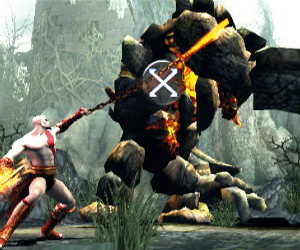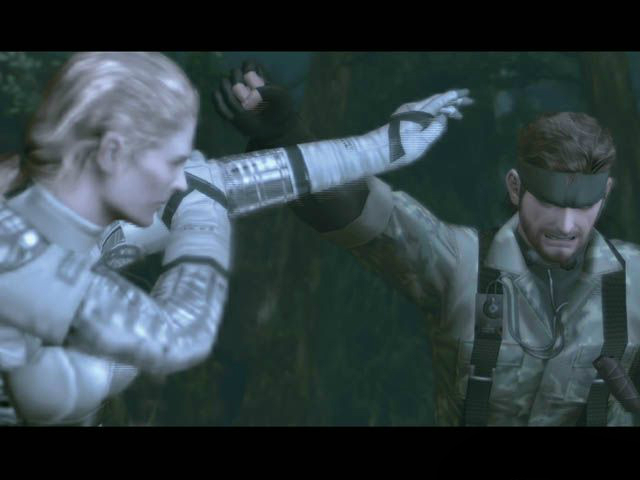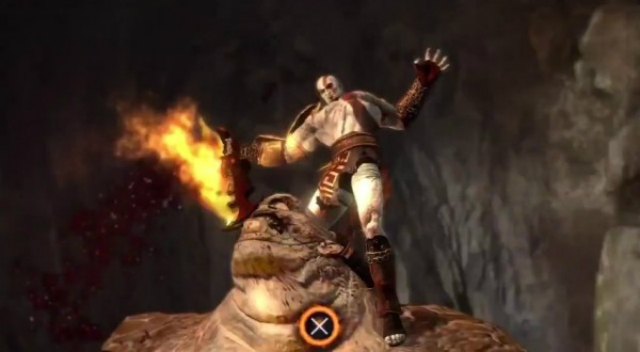Who’s in Control? – A Look at the Use/Overuse of Cut-Scenes in Video Games
 Over the past few years or so, video games have become a booming media outlet. Some may argue that the genre is more popular than television and film, outlets that now have more in common with gaming, with the complexity of the production and writing in games following a format very similar to that of a movie. Some have distinct acts and episodes emphasized by miniature movie cut-scenes or interactive sequences known as quick time events (QTEs). Advancements in presentation involving camera angles and shadowing have also added to the overall experience over the past couple of years.
Over the past few years or so, video games have become a booming media outlet. Some may argue that the genre is more popular than television and film, outlets that now have more in common with gaming, with the complexity of the production and writing in games following a format very similar to that of a movie. Some have distinct acts and episodes emphasized by miniature movie cut-scenes or interactive sequences known as quick time events (QTEs). Advancements in presentation involving camera angles and shadowing have also added to the overall experience over the past couple of years.
Mimicking movies has definitely added depth to the gaming experience but some would argue there is an inherent deficiency by doing so. Some feel that cinematics and QTEs actually take away from the experience as they take control away from the player. Many make the point that an over use of cut-scenes and QTEs shorten the actual time you spend with true gameplay. This may be a fact, depending on how it’s viewed, and the discretion of the player, although some gamers see it as an easy way for developers to avoid adding another action sequence; personally I’m pretty sure either way it is plenty of work for developers.

One of the more cinematic games is the Metal Gear Solid series, the first of which was released on the original PlayStation. When first released it became a benchmark in gaming, not only because of its style of stealth/action gameplay, but the way the intricate story was fleshed out by slick cut scenes during the missions, as well as at the end. These scenes were integral as they answered the why of the five Ws, speaking in terms of writing, the who, what, when, and where left to be answered purely by the gameplay. Until this point I just accepted most games for what they were. How come that flower makes me shoot fireballs? It just does. Why are these aliens attacking earth? Because they want to. Why did the D.A.R.P.A. chief randomly die when I just saved him? Stay tuned, a cut scene will soon tell you. A game as in depth as this would not work without its fair share of well-done cinema. It had the perfect balance in my opinion.
A few years later Metal gear Solid continued the cinematic story telling with Metal Gear Solid 2: Sons of Liberty, featuring refined and new gameplay aspects, superb graphics, and of course high end cut-scenes that highlighted a somewhat convoluted story. Quite an abundance of mini movies as a matter of fact; so much that some gamers took issue with it. “They are taking the control out of my hands!”, “I paid my cash to play a game, not watch a movie!” were just two of the many comments that I heard. I personally did not mind them, even if I did feel they were a bit lengthy, the scenes were well done and generally action packed. I enjoyed this sort of interactive movie that Konami had created and continued to deliver for a few more instalments. Metal Gear Solid 3 received some of the same criticisms, but not to the extent of its final iteration on PlayStation 3. Before the game was even released, there were rumours of 90 minute single cut scenes. This was not to everyone’s liking, but it turned out not to be completely true, some are quite long, especially the full ending sequence. The whole game has about 9GB of cut-scenes altogether, which is a large number considering a full length feature film in mp4 format is about a 1GB on average.

I’m pretty sure taking control from players is the last thing a designer wants, especially when presenting a new IP. Back in 2000, 1999 in Japan, one of our recent Hall of Fame entries was released in Shenmue. This marked the first time I was introduced to the QTE system. It’s sort of an interactive cut-scene where timed button presses create a reactionary response from your character. I can remember vividly a small fight in a bar involving Shemue’s infamous crew of sailors being one of its first QTEs. It was quite fun, even though I was not in complete control of the character, the choreographed fight scene animated well, and had a more realistic feel to it. Today, more games have taken on this innovation, namely the God of War series. The use of QTEs seemed to be a bit of a novelty, some fans seemed to grow tired of not being able to control all the fighting, but I personally thought the QTEs offered some of the most gruesome and engaging scenes in the series, especially in God of War 3. Other games have followed suit but Quantic Dream took cut-scenes and QTEs to another level with their games Indigo Prophecy (known as Fahrenheit in some areas) as well as the more recent Heavy Rain. These games almost solely rely on usage of cut scenes and QTE. So much in fact there were events for trivial tasks such as sweeping or drinking a cup of coffee. Ambitious titles to say the least, which I felt were well done because of the presentation of the story. Though done very well, I realize these games are not everyone’s cup of tea. Not everyone wants to press a button and have the character react with 3-4 different actions the player cannot control.
Gamers have certain expectations when they sit down to enjoy their past time. Most gamers turn their systems on to experience a sort of escapism, in most instances we partake in activities we could not experience in our own lives, so I do get that there is a disruption of that feeling during times without gameplay. On the other hand, and this is truly my own opinion, I feel these areas filled by cut-scenes add to the experience. Most of the time you learn more about an area or character which I feel further adds to the immersion of the game. I don’t mind QTEs either, being a turn based RPG buff, I do not mind not being in total control of the fighting as long as the story and visuals are entertaining. I guess it’s a matter of preference and expectation. It will all be relative to the gamer in control how the level of idle gameplay moments affect their own experiences.
Jason Hendricks
Hello everyone. I am Jason Hendricks. I am 30 years old which a few days ago, I realised makes me quite old in the eyes of gamers. I was born and Raised in the Bronx in New York City and now I reside in Brooklyn NY. I am a gamer through and through. I will try any games but my favorites would be 3rd person shooters, fighters, and certain sports games. This will vary from game to game though. If I am not playing video games or spending time with my family, I will probably be partaking in some musical activity. Most likely playing my guitar. Don't let my last name fool you...I can carry a tune, but Im not that good.
My gamertag is Exmeth




